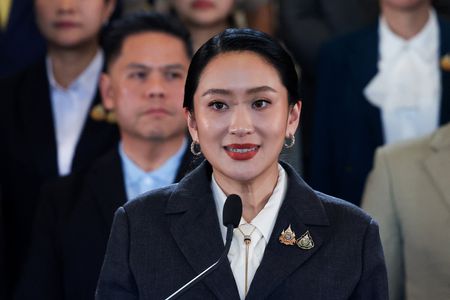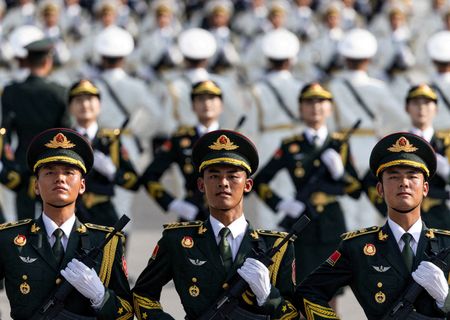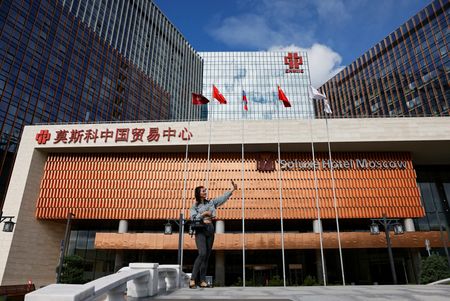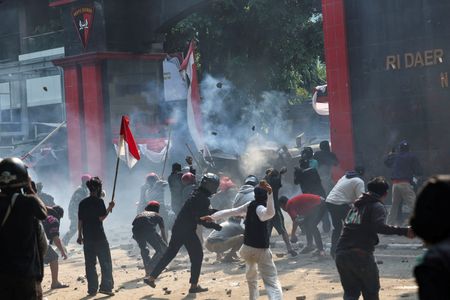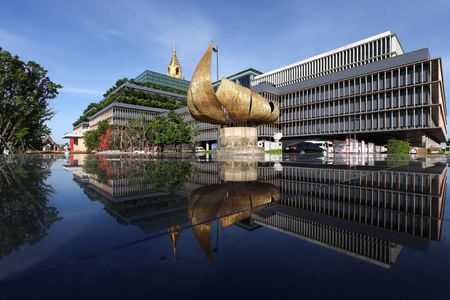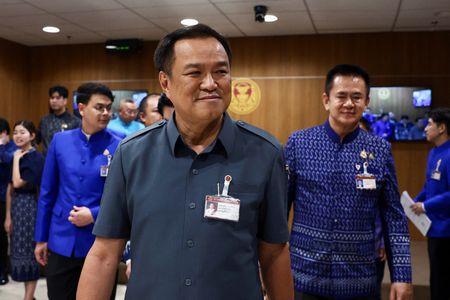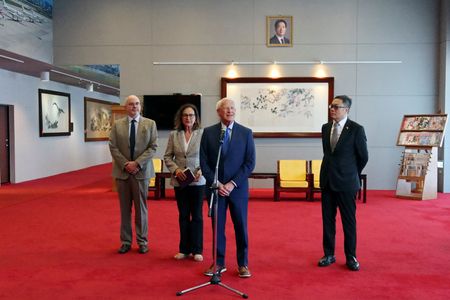By Panarat Thepgumpanat and Chayut Setboonsarng
BANGKOK (Reuters) -Thailand’s Constitutional Court dismissed Prime Minister Paetongtarn Shinawatra from office on Friday for an ethics violation after only a year in power, dealing another crushing blow to the Shinawatra political dynasty that could usher in a new period of turmoil.
Paetongtarn, who was Thailand’s youngest prime minister, becomes the sixth premier from or backed by the billionaire Shinawatra family to be removed by the military or judiciary in a tumultuous two-decade battle for power between the country’s warring elites.
In its verdict, the court said Paetongtarn violated ethics in a leaked June telephone call, during which she appeared to kowtow to Cambodia’s powerful former leader Hun Sen – until recently a close ally of the Shinawatra family – when both countries were on the brink of an armed border conflict.
Fighting erupted weeks later and lasted five days.
The ruling paves the way for the election by parliament of a new prime minister, a process that could be drawn out, with Paetongtarn’s ruling Pheu Thai party losing bargaining power and facing a challenge to shore up a fragile alliance with a razor-thin majority.
In a 6-3 decision, the court said Paetongtarn had put her private interests before those of the nation and had damaged the country’s reputation, causing a loss of public confidence.
“Due to a personal relationship that appeared aligned with Cambodia, the respondent was consistently willing to comply with or act in accordance with the wishes of the Cambodian side,” the court said.
The ruling brings a premature end to the premiership of the daughter and protégé of influential tycoon Thaksin Shinawatra. Paetongtarn, 39, was a political neophyte when she was thrust abruptly into the spotlight after the surprise dismissal of predecessor Srettha Thavisin by the same court a year ago.
Paetongtarn called for unity among all parties to bring political stability to Thailand.
“All I wanted was to safeguard the lives of people, whether soldiers or civilians. I was determined to do all I can to protect their lives before the violent clashes,” she told reporters.
DEALMAKING BEGINS
She is the fifth premier in 17 years to be removed by the Constitutional Court, underlining its central role in an intractable power struggle between the elected governments of the Shinawatra clan and a nexus of powerful conservatives and royalist generals with far-reaching influence.
The focus will next shift to who will replace Paetongtarn, with Thaksin expected to be at the heart of a flurry of horse-trading between parties and other power-brokers to try to keep Pheu Thai in charge of the coalition.
Deputy premier Phumtham Wechayachai will be in charge as caretaker until a new prime minister is elected by the house, with no time limit on when that must take place.
Five people are eligible to become prime minister, with only one from Pheu Thai, 77-year-old Chaikasem Nitisiri, a former attorney general with limited cabinet experience, who has maintained a low profile. Pheu Thai confirmed on Friday it would nominate Chaikasem.
Others include former premier Prayuth Chan-ocha, who has retired from politics and led a military coup against the last Pheu Thai government in 2014, and Anutin Charnvirakul, a deputy premier before he withdrew his party from Paetongtarn’s coalition over the leaked phone call.
Anutin’s Bhumjaithai Party said on Friday it would meet with the opposition People’s Party, the largest force in parliament. The People’s Party said it would not join a government but would give its backing to any party under certain conditions.
The ruling thrusts Thailand into more political uncertainty at a time of simmering public unease over stalled reforms and a stuttering economy expected by the central bank to grow just 2.3% this year.
Any Pheu Thai-led administration would likely have only a slender majority and could face frequent parliamentary challenges from an opposition with huge public support that is pushing for an early election.
“Appointing a new prime minister…will be difficult and may take considerable time,” said Chulalongkorn University political scientist Stithorn Thananithichot.
“It’s not easy for all parties to align their interests,” he said. “Pheu Thai will be at a disadvantage.”
(Reporting by Panarat Thepgumpanat, Panu Wongcha-um, Chayut Setboonsarng, Thanadech Staporncharnchai, Pasit Kongkunakornkul and Devjyot Ghoshal; Writing by Martin Petty; Editing by Raju Gopalakrishnan, William Maclean)

